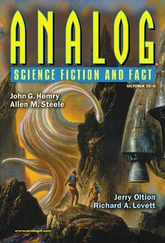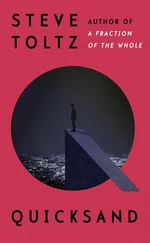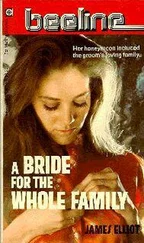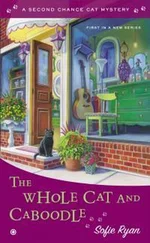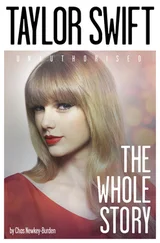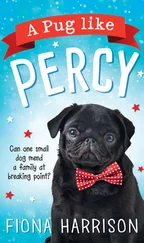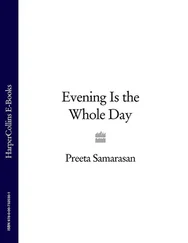It started far from home. One morning headlines shouted that key players in the Australian cricket team had been caught taking bribes from bookmakers to underperform in international matches. It was big news, perhaps bigger than it deserved, mostly because if sport is Australia ’s national religion, as it has been said, then it was like all the Christian fundamentalists finding out that God made the trees and mountains without first washing his hands. It rocked a lot of cores. There was public outcry and mass disappointment and saber-rattling and everywhere people said it was disgusting and rotten and corrupt and an unremovable stain on sport. The voices on the radio bayed for blood. They wanted to hear the snapping of necks: the necks of the bookies and the necks of the real traitors, the players themselves. The politicians cried for justice and vowed to get to the bottom of things, and even the prime minister promised “a thorough and exhaustive inquiry into corruption in sport.”
For me, this sporting scandal was mere background noise. I was too preoccupied with my own problems: my mother was dying and shutting herself up like a mad queen, my father was disappearing into a bottle, and my brother was tearing through the world with a gun in one hand and an ax in the other.
The next Saturday that Terry and I met at a game, it was Australia vs. Pakistan. There had been a question as to whether it would still be on, considering the scandal, but the innocent-until-proven-guilty technicality meant it was going ahead as scheduled. The sky was bright and the air full of spring- the kind of day that lulls you into a false sense of security, but I still felt the apprehension I always feel in groups of thirty-five thousand people apt to pool their collective fury at a moment’s notice.
When the players walked onto the field, the crowd started to boo like mad, because these were the men implicated in the scandal. Some of the players ignored the crowd, while others gave the fuck-you sign, the one where you use both arms. It was a hoot. I love booing. Who doesn’t? Some of the boos were chock-full of fury, while others were more lighthearted boos mingled with laughter. Beside me Terry didn’t make a sound.
When the captain came out to bowl, there wasn’t just booing but hissing, and people started throwing things, like beer cans and shoes- their own shoes! One of the spectators jumped the fence, ran onto the field, and tried to tackle the captain. Then a crowd spilled out too. Someone blew a whistle, and the game was clearly over when Terry turned to me and said, “Let’s go.” I thought he meant “Let’s go home,” so I agreed, but before I knew what was happening, Terry was bolting down the grandstand toward the cricket oval. I tried to follow, but for a long time I couldn’t see him in the madness of the crowd that had come from all sides and blocked the teams’ exit. It was all very tribal and nerve-jangling. You know how rioting mobs are.
Then I heard some yelling that was different in character from the stock murmuring of the furious mob. I saw what they were looking at, an image that has never left the inside of my eyelids: Terry had pulled out a gun and was pointing it at the Australian captain. Terry’s eyes were wide and clear, his face refreshed, as if he’d just bathed in crystal waters. He wore an uncharacteristic look of self-admiration. The mob watched on, frozen. They wanted to run, but curiosity wanted them to stay. Curiosity won. Police were fighting their way down the grandstand steps when my brother shot the captain of the Australian cricket team in the stomach.
***
I don’t know how we got out of there. I remember Terry seeing me in the crowd and waving. I remember running. I remember Terry laughing and suggesting we split up and just before disappearing into the crowd saying, “Let’s see if he can underperform his own death!”
There was no bigger story in Australia, before or since. Not even the Federation got as much press. And the worst thing was, they had pictures. Someone took a beauty of Terry standing there, eyes shining, arm outstretched, the gun held out in front of him and a friendly smile on his face, as if he were about to give the captain an amiable piece of advice. Every newspaper and television station ran that picture. From then on, he was a wanted man. This was the real beginning of Terry’s infamy.
Our little town was inundated with police and reporters. The reporters were a nuisance. They wouldn’t take “Fuck off” for an answer. The police were irritating too. They asked me all sorts of questions, and for a while I was under suspicion. I admitted having gone to the game with my brother but said I’d lost him as soon as he ran into the crowd. No, I said, I didn’t see the shooting. No, I said, I hadn’t heard from him since. No, I said, I didn’t know where he lived. No, we weren’t close. No, I didn’t know who his friends or associates were. No, I didn’t know where he got the gun. No, I didn’t even know he had a gun. No, I didn’t expect to be hearing from him again. No, if I did hear from him I wouldn’t call the police, because after all, he was still my brother. Yes, I had heard of obstruction of justice. Yes, I knew what being an accessory was all about. Yes, I would be willing to go to jail, but I’d really rather not.
The police gave my mother a good grilling too, but she wouldn’t answer their simplest questions- when the chief detective asked, she wouldn’t even tell him the time.
Terry could never come home again. That was the thing that killed my mother. She cried inconsolably, and from then on slept most nights in Terry’s old bed. She made one of his favorite dishes every mealtime, and, perhaps to punish herself, she stuck the newspaper article with Terry’s picture to the fridge under a pineapple magnet. She obsessed over that picture, even going so far as to measure it with a ruler. One morning I came down and saw my mother studying it. I said, “Let me throw that away.” She didn’t say anything, but when I reached over to take it she elbowed me in the stomach. My own mother! Later, around four in the morning, I woke to see her sitting at the edge of my bed.
“What’s wrong?”
“Do you remember William Wilson by Poe? And The Double by Dostoyevsky?”
These were books she’d read to me while I was in the coma. I remembered them perfectly, almost word for word.
“I think Terry has a double,” she said.
I shook my head and said, “I don’t think so.”
“Listen to me. Everyone has a double somewhere in the world. That’s what’s happened here. Terry didn’t shoot anyone. It was him, the double!”
“Mum, I was there. It was Terry.”
“I admit it looks like him. That’s what doubles are. Look-alikes. Identical look-alikes. Not look-a-little-alikes.”
“Mum…”
Before I could say any more, she was gone.
So where was Terry? At Harry’s? The next morning at breakfast I decided to go see for myself. When I stepped outside I saw that the reporters had gone home, but on the bus to the city it occurred to me I was probably being followed. I peered at the cars on the road. Sure enough, I saw it: a blue Commodore following. I got off at the next stop and went into the movies. It was a comedy about a husband who dies but comes back as a ghost and haunts his wife whenever she looks at another man. Everyone was laughing but me; I found it grotesque, and it made me really hate the dead, the selfish pricks. Two hours later, when I stepped into the sunshine, the car was still there. I knew I had to lose them, to “shake my tail,” so I ducked into a shop. It was a tailor’s. I tried on a black dinner jacket and I looked good but the sleeves were just a little too short. Out the window, through mannequin legs, I could see my blue hound dog. I asked if they had a back entrance, even though I wanted to use it as an exit. They had one. In the alleyway there was another Commodore, only this one was white with leather seats that I could almost smell. I fast-walked it down the street and looked for another shop to duck into.
Читать дальше

